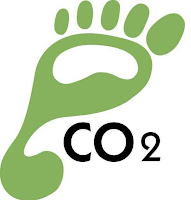B Block Geography 12 - Today I'll have you work in partners on the Ecuador case study. Remember the question is: Using the data provided on the next two pages and your understanding of geography:
- Describe Ecuador's natural and physical characteristics
- Assess the impacts associated with the exploitation of Ecuador's natural resources
- Suggest reasons why the government of Ecuador faces significant challenges in trying to balance the use of its natural resources with the protection of its environment

A Block Law 12 - OK so let's get ready. This is it...today I have the library booked for you to finish up your work on the major civil law project. Not to sound pushy but you have today to work on this assignment in class and that's it...like no more...really...I'm serious, you have no more time in class to get this done and it's a major project...and you've had all term to work on it...no pressure. If you are done then I'd like you to begin your preparations for the final exam. The final exam for Law 12 is broken up into two parts. On Friday we'll work through the written answer section (there are 13 law scenarios that have questions attached that you'll need to answer) while tomorrow you'll work through the selected response portion of the test. On this section you'll have 30 True/False questions, 65 Multiple choice responses and 65 Matching questions.Breathe...it's almost done
D Block Social Studies 11 - Today we'll finish watching the first half of the National Geographic DVD “Six Degrees Could Change the World”. This DVD shows the potential environmental changes (not the actual ones) that may happen with incremental degrees of climate change.
Yesterday we got through one degree and half way through two degrees. We were examining Greenland and melting ice at two degrees of warming. After the European heat wave
section could you answer the following:
- What happened? – What is a heat wave? How long does it have to last and how hot does it need to be?
- When did it happen? – You should be able to quote the month and the year.
- Where did it happen? – The case study discusses the ‘European Heat Wave’ but which city does it focus upon?
- Why did it happen? – The heat wave caused the deaths of many people. What human systems caused the death rate to be so high?
- Who was affected by it happening? – The impacts of the heat wave were particularly harsh upon one section of the population? Which section of the population was it? You should also be able to explain why.
and there is a great National Geographic video called Extreme Ice about the Extreme Ice Survey
C Block Crime, Media & Society 12 -OK so this is it...today is the last day in the library working on the collaborize classroom site. Now for today I'd like you to do two things:
- Continue posting in your individual project thread and
- Work with your partners on your group project assignment.







No comments:
Post a Comment